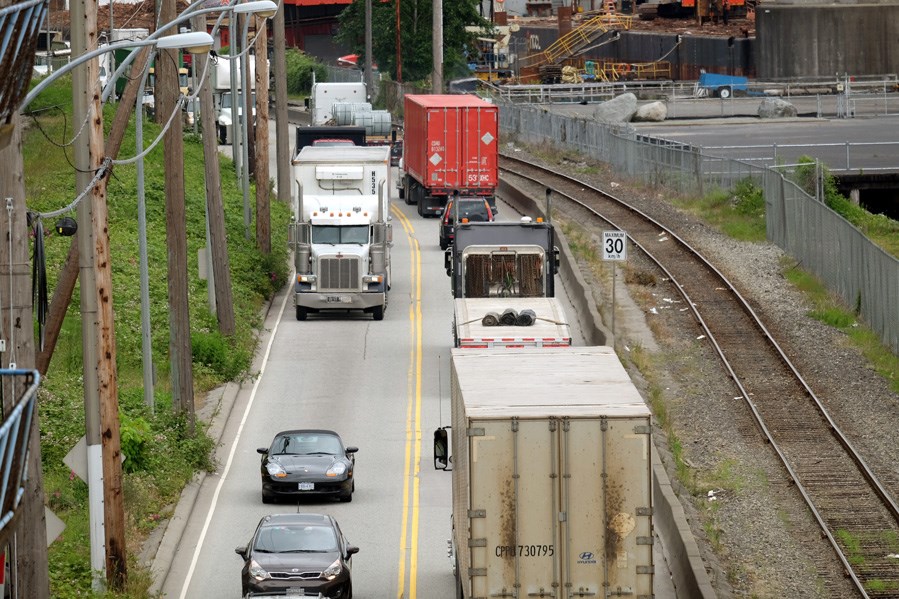Survey says … Royal City resident would prefer to pay a bit more in taxes to maintain city services.
The city commissioned Ipsos Reid to survey residents to help guide the city in preparing a five-year financial plan.
“The results are really quite favourable,” said Gary Holowatiuk, the city’s director of finance and information technology. “Council has this information now. As we get into budget deliberations, which will start in November, this will be front-of-mind for council.”
Holowatiuk said Ipsos Reid polled residents about a wide range of topics including quality of life in New Westminster, top-of-mind issues, city services and capital expenditures. He said the city will use the survey results to help guide the development of the 2016 to 2020 financial plan.
Although council received the report at its Oct. 26 meeting, Holowatiuk didn’t delve into the results because a representative from Ipsos Reid will be making a presentation about the findings at the Nov. 2 evening council meeting.
When asked what services the city could reduce or eliminate, 83 per cent of survey respondents said none. Suggestions for specific ways to reduce or eliminate city services included transportation (including removing parking meters), reducing municipal government spending, placing a cap on government salaries, and charging user fees for services/recreation facilities.
When given a choice between increased taxes or service cuts, the report said 56 per cent of citizens prefer tax increases and 34 per cent opt for service cuts.
“Overall, 62 per cent of citizens say they would support a tax increase in the range of two per cent to three per cent in order to maintain existing city services and meet annual funding challenges,” said the Ipsos Reid report.
According to the report, Royal City residents are “decidedly positive” about the quality of life in the city today, with 98 per cent rating it as very good or good. Ipsos Reid found the percentage of respondents rating the quality of life as very good has steadily increased over the past few years and is now nearly double the 2006 baseline measurements.
“Transportation dominates the public issue agenda,” stated the report. “Analysis of year-over-year tracking data shows significant negative shifts in opinion for key transportation metrics this year. Replacing or upgrading transportation infrastructure is now a top priority.”
Nearly seven in 10 residents named transportation as the most important issue facing the community. This includes traffic congestion, traffic flow, roads, public transit, condition of bridges, parking and condition of sidewalks.
Here’s a snapshot of some of the findings of the survey:
* 98 per cent of citizens rate the overall quality of life in New Westminster as good (56 per cent) or very good (42 per cent).
* 92 per cent of citizens are satisfied with the overall level and quality of services provided by the city.
* 91 per cent say city facilities and services are affordable and accessible. (This belief is higher among people with household incomes of $80,000 or more.)
* 88 per cent feel New Westminster is a walkable community.
* 87 per cent believe the city is a place where residents feels safe and secure.
* 86 per cent agreed the city delivers efficient and effective services.
* 83 per cent feel the city provides good and accessible governance.
* 73 per cent say growth in the city is reasonably managed.
* 72 per cent believe there is an appropriate level of public engagement on civic matters.
* 54 per cent believe the city is responding to its transportation needs. (This is down from 63 per cent in 2009.)



